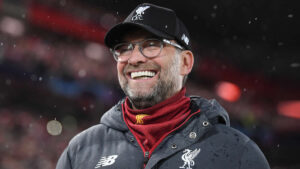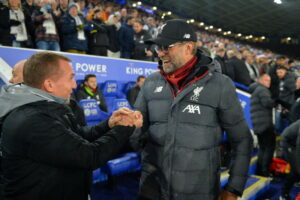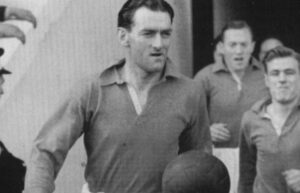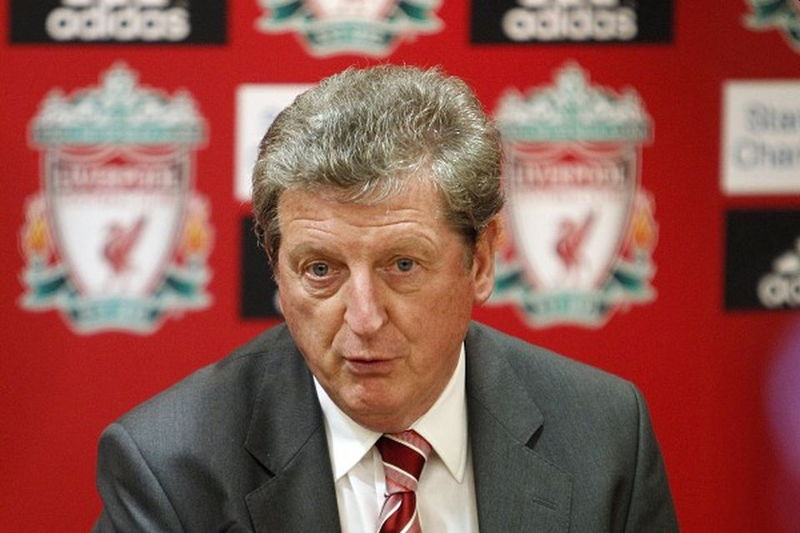
The series on Liverpool managers, along with other personalities that have been influential at the club over the years, has been entitled ‘Liverpool Legends’. In the case of Roy Hodgson, even adding a question mark feels as though it’s paying him more respect than he deserves.
Whilst there are some managers that seem to fit perfectly at a football club, with Bill Shankly and Jürgen Klopp being two really good examples of that, there are others that are so wrong that it is difficult to understand how they got the job in the first place. That is very much the case with Roy Hodgson, who couldn’t have been a worse pick for the Anfield hot-seat.
Ten years ago today Roy Hodgson’s Liverpool lost 1-0 at Anfield to Mick McCarthy’s bottom of the League Wolves.
They finished the game in 12th place, with 22 points after 18 games, just three points clear of the relegation zone pic.twitter.com/wdaE7lbebm
— The Anfield Wrap (@TheAnfieldWrap) December 29, 2020
Often painted as a gentleman of the footballing world, Hodgson could be seen as proof of the theory that Southerners don’t tend to do very well at Liverpool. There is no questioning the fact that he had achieved an outstanding amount of experience before he was given the job at Anfield, having managed abroad as well as in England.
The problem was the combination of arrogance and self-deprecation, meaning that he simultaneously seemed to believe that the job was beneath him and that the players weren’t good enough to do what he was asking of them. He is arguably the biggest managerial error that the club has ever made.
Hodgson the Player
Roy Hodgson was born in Croydon on the outskirts of London on the ninth of August 1947. His parents were working class, with his mother working as a baker in the town and his father working on the buses on the Southern side of the River Thames.
A keen footballer, he played in the school team alongside the likes of Steve Kemper and Lennie Lawrence, performing well enough to catch the eye of Crystal Palace. He played for them as a youth player, enjoying some success but struggling to break into the first team, eventually deciding to move away from Palace in order to get some playing time in an attempt to forge a career.
That meant heading to a non-league side, with Hodgson playing for Tonbridge Angels between 1966 and 1969. He then moved to another non-league side in the form of Gravesend & Northfleet, for whom he made 59 league appearances and scored one goal. In many ways, that was Hodgson finding his level, with appearances for the likes of Maidstone United, Ashford Town in Kent and Berea Park coming in the years that followed.
In 1974 he signed for Carshalton Athletic, which was where he saw out his playing career. He finally hung up his books in 1976, but having been the Assistant Manager at Maidstone United, it was clear where his future lay.
Moving into Coaching
In 1972, Roy Hodgson completed a teacher training course at Avery Hill College, earning a Certificate in Education that had an emphasis on Physical Education. He took on a role as a PE teacher whilst playing at Ashford Town, using his time as a teacher to supplement his income whilst he was playing.
In spite of the fact that there was a sporting boycott of South Africa at the time, Hodgson moved to play for Berea Park, in some ways showing the measure of the man. The combination of his work as a teacher and the experience that he gained as assistant manager whilst at Maidstone United meant that a career in management was always likely.
Roy Hodgson, after Halmstad secured SM-gold against Norrköping in Allsvenskan, 1976 pic.twitter.com/eZMNh5n1EH
— The Antique Football (@AntiqueFootball) January 22, 2014
Despite his links to the United Kingdom, Hodgson’s management career actually got underway in Sweden. He took on the managerial role at Halmstad, a team competing in the Allsvenskan, having been recommended for the job by his old schoolmate Bob Houghton, who was Malmö manager at the time.
Having struggled against relegation the year before Hodgson’s arrival, it was felt that the club would be a good place for him to learn without too much pressure. Surprisingly, though, he won the league twice during his five year period at the club; an achievement that Hodgson himself referred to as a ‘water-into-wine job’.
Earning More Experience
There are many things that Liverpool fans might say about Roy Hodgson, but one criticism that cannot be levelled at him is that he lacks experience. In 1980 he moved back to England to be the Bristol City manager, but the club was struggling financially at the time and he only lasted four months there.
As a result, he returned to Sweden to take over at a second-tier side Oddevold, failing to keep them in the division and moving to another second division team in Örebro. Though they won the league, they lost the play-off game against Mjällby and therefore were not promoted into the Allsvenskan. Another job in Sweden followed.
Roy Hodgson bought zonal defending to Sweden which helped him win the Allsvenskan with Halmstads BK in 1976 #factoftheday
— Alan (@alannick19) June 15, 2012
That job was at Malmö, where he was so successful that a part of the club’s stadium is still unofficially known as ‘Roy’s Hörna’, or ‘Roy’s Corner’. During his time there the club won five consecutive league championships as well as two Swedish championships and the same number of Swedish Cups.
He also took them into European competition and is generally considered to have been a huge influence on Swedish football in general. So successful was he, in fact, that Malmö offered him a lifetime contract. Hodgson turned that down, however, and moved to the Swiss side Neuchâtel Xamax in the July of 1990.
Getting Some Big Jobs
Roy Hodgson would doubtless tell you that he was always destined for greatness, so it probably didn’t come as much of a surprise when he was asked to become the manager of the Swiss national side in 1992. He took the Schweizer Nati to the World Cup in 1994, claiming to third in the World Rankings before being knocked out by Spain in the Round of 16.
He also helped Switzerland to qualify for Euro ’96, leaving after qualification was secured in order to take over at Inter Milan. In Italy, he did reasonably well, guiding the club to the UEFA Cup final, which they lost on penalties in a match that was played at the San Siro.
Roberto Carlos:
"Once upon a time at Inter Milan, Roy Hodgson told me I would never succeed as left back. He told me I wasn't good enough. I told him that he doesn't understand football." pic.twitter.com/arlGcAY1tf
— Old Days Football (@OldDaysFootball) October 24, 2020
From Inter Milan it was Jack Walker’s Blackburn Rovers next for Hodgson, where he won the Premier League Manager of the Month trophy twice during his first season. Their form collapsed in the second-half of the season and things carried on a lot like that during his second, with Hodgson being sacked on the 21st of November 1998 with Blackburn at the bottom of the league.
Hodgson would later claim that his lack of success at Blackburn had tarnished his reputation, believing that his success on the continent meant that he should have been held in the same regard as Alex Ferguson was. That was in spite of the fact that the British press were pushing him for the England manager’s job, replacing Glenn Hoddle.
Heading Back Abroad
In the wake of his time at Rovers, Hodgson went back to Inter Milan as a Technical Director, briefly becoming the Caretaker Manager before he took a job as Swiss side Grasshoppers. He might have been made England manager after Kevin Keegan’s resignation but he had already agreed to take over at FC Copenhagen.
He took over there in the July of 2000, winning the Superliga at the first time of asking and also winning the Danish Supercup. That earned him a job at Udinese, but he lasted less than six months in Italy. In the April of 2002, he was appointed as the head coach of the United Arab Emirates.
Roy Hodgson – United Arab Emirates national team (2002) pic.twitter.com/3uMFUBZGNy
— actualmanagers (@actualmanagers) December 24, 2023
He was sacked from that role in the January of 2004, later referring to the players as ‘basically lazy’. A few months later and he took over at the Norwegian side Viking, lasting until the December of 2005, at which point he resigned in order to become the manager of the Finland national team. He struggled to make any real impression there, leaving the post with a win ratio of 27.3%.
His contract ended in the November of 2007, with the Finnish FA keen to keep him in the post but Hodgson deciding to walk away, if for no other reason than he was once again being considered as an outside candidate for the England job.
The Move to Liverpool
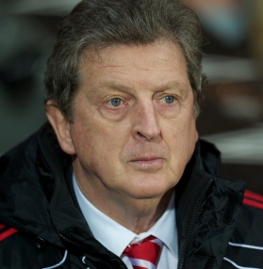 Roy Hodgson was appointed as the manager of Fulham on the 30th of December 2007, with the London club struggling at the time. He initially struggled himself, getting some poor results in the league and being knocked out of the FA Cup by League One side Bristol Rovers.
Roy Hodgson was appointed as the manager of Fulham on the 30th of December 2007, with the London club struggling at the time. He initially struggled himself, getting some poor results in the league and being knocked out of the FA Cup by League One side Bristol Rovers.
He did, though, keep them up, making some shrewd signings in the summer in order to guide them to seventh place in the Premier League the following season.
He got them into the Europa League, taking them all the way to the final the following season. There they faced Atlético Madrid, who eventually won thanks to a goal from Diego Forlán in extra-time.
Roy Hodgson has had a long and varied career in World football
Unfortunately when you’re at Liverpool FC calling out Northampton Town as “formidable opponents” and describing a draw against Everton as “Utopia” you’re not doing yourself any favours pic.twitter.com/fWNQalCYV1
— SECTION 128 (@BradYNWA6) May 22, 2021
Fulham’s performances in the Europa League had an impact on their Premier League form, but Hodgson was voted the LMA Manager of the Year by a record margin. Meanwhile, at Anfield, Rafa Benítez had fallen foul of the in-fighting between the owners and even some supporters, with Hodgson’s friends in the press putting it out there that he deserved a shot at a big club such as Liverpool.
So it was that on the 30th of June 2010 it was reported in the Liverpool Echo that the Reds would pay a £2 million compensation fee to Fulham in order to bring Hodgson in as the replacement for the beleaguered Spaniard, who had won the European Cup with Liverpool.
An Uneasy Alliance
Hodgson was appointed Liverpool manager on the first of July 2010. For supporters, the fact that Kenny Dalglish was a club Ambassador and was willing to take over as manager meant that there was already someone better-placed to take over the role, but instead Hodgson was brought in in order to ‘steady the ship’.
Hodgson brought in Milan Jovanović and Joe Cole, getting his competitive time in charge of the club underway with a 2-0 win over Rabotnički away in the Europa League. Further signings arrived in the form of Brad Jones, defenders Danny Wilson and Paul Konchesky and midfielders Christian Poulsen and Raul Meireles.
https://twitter.com/NoContextPool/status/1747309917407428827
The first Premier League win for Hodgson’s Liverpool team came thanks to a 1-0 win over West Bromwich Albion, but a series of poor results followed.
The Reds were knocked out of the League Cup by League Two side Northampton Town, whilst defeat to Blackpool, a newly promoted side, left the club third from the bottom. Off the pitch, New England Sports Venture had bought the club, with the new owner John Henry publicly backing Hodgson even as most of the supporters had turned against him.
He regularly made odd comments, such as referring to Northampton Town as ‘formidable opponents’ and declaring a loss to Everton as ‘as good as we have played all season’.
Life After Liverpool
It is fair to say that Roy Hodgson never suited Liverpool. When Alex Ferguson accused Fernando Torres of diving, Hodgson didn’t defend his player but instead said that the Manchester United manager was ‘entitled to any opinion he wants to have’.
When José Mourinho said that Liverpool would get ‘worse and worse’, Hodgson said, “If the great man Mourinho says it, I don’t know why you don’t quote him.” Liverpool fans didn’t want him and it seemed as though he didn’t want to be there, saying, “We are not deliberately losing games. I have to hope the fans will become supporters because we need support. We are not deliberately losing games.”
Roy Hodgson is surely one of the worst managers in the game, but bizarrely seems to avoid scrutiny.
He failed at Inter, failed at #LFC, failed as England manager & has never won a trophy in England.
He has won the mighty Danish & Swedish league titles though..#royhodgson
— Mr Patterson (@_mrpatterson) January 20, 2024
He eventually left the club by mutual consent on the eighth of January 2011, with Kenny Dalglish coming in as his replacement. He went to West Bromwich Albion leaving the club at the end of the season having guided it to its highest top-flight finish since 1981. He was finally appointed as the England manager, the role that he had craved for years, on the first of May 2012.
He remained in the role until the 27th of June 2016, resigning after England had been knocked out of Euro 2016 by Iceland. In September 2017, he was hired by his boyhood club Crystal Palace, remaining there until the end of the 2020-2021 season, only to return in March 2023 having managed Watford in the intervening years.
"If we're going to avoid relegation, we need those fans with us" 💢
Roy Hodgson responds to frustration from Crystal Palace fans 🗣️pic.twitter.com/R9sqHOK7Rs
— Sky Sports Premier League (@SkySportsPL) January 21, 2024
Hodgson’s win ratio as Liverpool manager was 41.94%, having taken charge of 31 games and winning 13 of them, losing nine and drawing nine. He won nothing, being seen as many as the worst Liverpool manager of the modern era.

